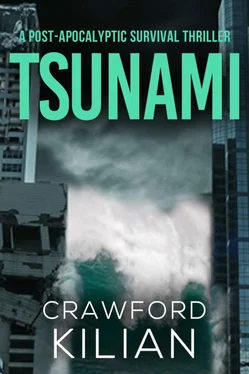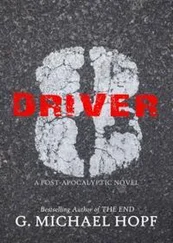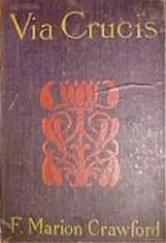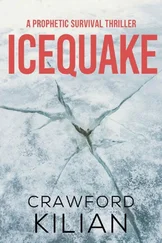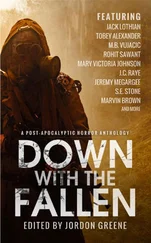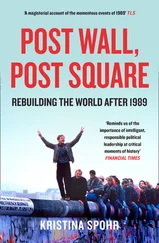The Marin shore, five kilometres to the west, showed the scars of the tsunamis. All the lower slopes had been scoured clean of life; bedrock gleamed wetly. Above the scars, houses stood undamaged along tree-lined roads.
“They haven’t had a big wave since midnight,” Bill rasped, “and the seiches in the bay have died down. But the slick is all over the northeast corner, and across to Marin, and up into San Pablo Bay. Lot of fires in the city.”
“Anything from PIO?” Don asked.
“Uh-uh.”
The ship picked its way inshore, steering around islands of debris; a lookout in the bow used the ship’s phone to guide Bill through clear water.
Don went outside as Ultramarine entered the Golden Gate. Grey sky hung low over the sea. The two peninsulas faded into mist not far to the north and south; over San Francisco, smoke coiled up into the overcast. It was fairly quiet, except for the drone and thump of the engines, the susurration of water against the hull, and the distant white noise of the city.
Just to the right of the ship’s course, the south tower of the Golden Gate Bridge rose above the incoming tide. The roadway it supported ran out from the steep bluffs of the Presidio, between the twin orange pillars, and ended in ragged steel and concrete. Support cables trailed into the water. Steel had twisted, concrete had shattered, but somehow the structure held together.
A line of surf showed where the north tower lay beneath the surface. On the gouged bedrock of the Marin Headlands, the northern end of the roadway lay twisted and shattered.
Straight ahead, Alcatraz stood out clearly against the smoke cloud of the burning slick; the hills behind Berkeley were just visible through the tattered edges of the cloud.
Don turned to look at the San Francisco shoreline again. The old bastion on Fort Point was gone; on the muddy slopes of the Presidio, soldiers and civilians wandered without obvious purpose. Beyond the trees and red-tile roofs of the Presidio itself, more smoke rose in streaks of black and grey, white and yellow. Don saw a helicopter rise from somewhere inside the army base and vanish into the smoke.
The surface of the water was a matted mass of uprooted trees, capsized sailboats, oil drums, furniture, tires and corpses. Despite the lookout, Ultramarine kept striking debris. The smell in the air thickened into a smoggy stink.
Now they were within the bay, and keeping well offshore. Although he had the harbour to himself, Bill Murphy kept Ultramarine moving dead slow. The ship crept south along the ruined docks; apart from the broken concrete pillars of the Embarcadero Freeway, Don could see little of the city through the thickening haze of smoke. Beyond where the Ferry Building had been, the smoke was a solid black wall, blotting out everything on the far side of the bay. Coughing, Don went back up to the bridge.
“Looks really bad,” Bill said. “I don’t think we’ll find much left of PIO.” He picked up a microphone.
“ This is Bill .” His voice echoed from loud-speakers all over the ship. “ I want everyone below decks . Everyone . Secure all portholes and ventilation .” He put the mike back on its hook and tugged his baseball cap lower over his eyes. He crossed himself.
Darkness fell over the ship. Smoke swirled in grey cones in front of the spotlights, and the foghorn blatted every few seconds. Bill watched the radar and sonar screens; their green lights were reflected in his eyes.
One of the Bay Bridge’s huge concrete footings loomed through black haze; the roadway above was only a darker smudge. Don went to the starboard windows.
The footing was pitted and scarred for almost ten metres above the surface of the water. Deep cracks ran through the concrete; fragments of wood and plastic had been forced into them, and hung like moss.
“That high — this far inside the bay—” Don shook his head. “There won’t be a thing left of the Institute.”
PIO’S buildings had stood on China Basin Road, near Pier 48. Dozens of pilings still jutted from the water, but the Institute’s converted warehouses were gone. Where they had been, oily water reflected the orange glare of the burning city.
“Well, well,” Bill muttered. Owen stared out the windows, expressionless.
A low, dark peninsula stood beyond the ship’s bow: the naval shipyards at Hunter’s Point.
“Maybe the navy will take us in,” Owen said quietly.
While flotsam thumped against the hull, the ship crept south. It was still several hundred metres from the north side of the shipyards when everyone on the bridge could see that the docks were wrecked here as well. The seiches had swept back and forth across the low peninsula of Hunter’s Point, turning the machine shops and dry docks into rubble.
Bill and Owen spoke together for a few minutes, quietly and gravely. Then Bill ordered the anchors dropped. He picked up the mike.
“ We’re going to anchor here and assess the situation , people . If it’s at all possible , we’ll ferry you ashore in the Zodiacs . I know you all want to get to your families as soon as possible , but I’d like some people to stay aboard for a day or two .”
“Company’s coming,” said Don.
A small motorboat was approaching across India Basin; behind it was a high wall of rubble where Innes Avenue had been, and beyond that the long hill with the housing projects that were the heart of the Hunter’s Point ghetto. As the boat drew nearer, the people on the bridge could see that it carried four young men. All were black and all carried rifles.
The old woman lay on the wet blacktop of the school’s playing field. Her skirt and sweater were muddy and sodden. Kirstie lifted the old woman’s head, and held a styrofoam cup of water to her lips.
“I’m not thirsty, thank you,” the old woman whispered.
“All right, then. We’ll have you inside soon. The doctors will take a look at you, and then off you’ll go to a nice warm bed.”
“What’s your name, dear? Are you from England?”
“My name’s Kirstie Kennard, and I’m from Aberdeen, in Scotland. And what’s your name?”
“My name is Susan Smith. I live at ten-twenty-five Francisco Street. Where am I?”
“Just a couple of blocks from home, Mrs. Smith. At the school up the street.”
Kirstie glanced across the crowded field, over the crude shelters made of plastic sheets or slabs of plywood. The school was on the east side of San Pablo Avenue, and the disaster zone started across the street. From there to the bay, a distance of nearly two kilometres, almost every building had been damaged or destroyed. The old woman had been pulled from the ruins of her home and carried on the shoulders of two nameless men, men who had waded knee-deep through oily mud to bring her here.
“I’m cold. I don’t feel well.” Her breath rasped in her throat. She found Kirstie’s hand and squeezed it. For a long time she lay still; at last Kirstie put a hand gently on the woman’s narrow chest, feeling for a heartbeat. Beneath the skin she felt only the sharp ends of broken ribs. The old woman had died.
Rain pattered again on the plastic sheeting just above her head. The air stank of smoke and wet ashes and excrement. All around her, people lay or sat on the blacktop. Most of them were hurt; many were dying. Susan Smith had been the fourth person to die in Kirstie’s company in the last two hours. The schoolyard buzzed and hummed with voices: screams, shouts, weeping, laughter.
Читать дальше
